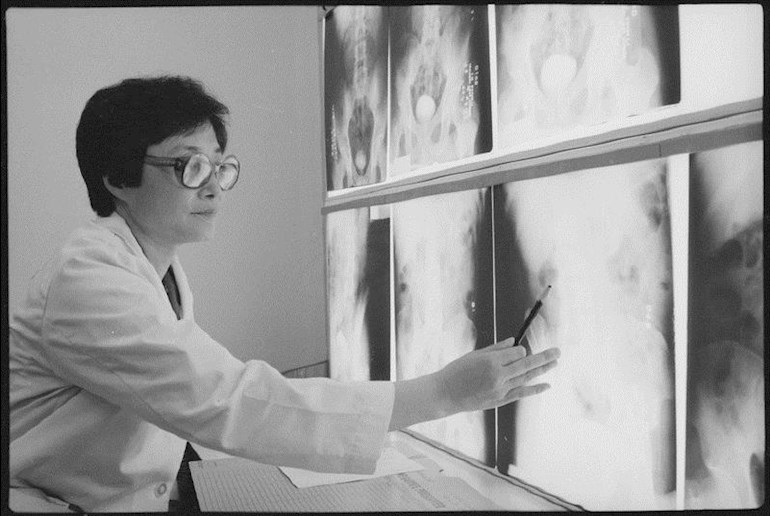Well, I’ve got two doctors, and I ain’t ashamed,
Two doctors and I love them both the same,
Let me tell you ‘bout my first doctor.
She’s smart and kind and she takes her time.
Well, I’ve got two doctors, and I ain’t ashamed,
Two doctors and I love them both the same,
Let me tell you ‘bout my other doctor.
She treats lungs all day, the latest news comes her way.
With apologies to William Robinson Jr., who wrote “Two Lovers”.
Finding the right oncologist is the first challenge we have as lung cancer patients. If you live in an urban area, you may be referred to a oncological specialist who primarily treats lung cancer patients. If you live in a rural area, like I do, you will be referred to a general oncologist who treats patients with any kind of cancer. Initially we are relying greatly on that doctor, because we don’t know anything about lung cancer yet, or about the treatment options we may have. In our initial months of diagnosis and treatment, we are sorting out our attitudes, learning the basics about our disease, and trying to figure out if we trust our oncologist and the recommendations he or she is making.
Another important factor in sorting out our best options is what resources are available to our doctors, and to you. A community cancer center is much less likely to be able to offer a clinical trial, and just as your doctor will likely be a general oncologist, the radiologist who is reading your scans is likely to be a generalist, reading both your scans and the MRI of your spouse’s arthritic knee.
I have been very fortunate. While my local oncologist has a general practice, she keeps up with new developments and with changes in the National Comprehensive Cancer Network treatment recommendations. She steered me in the right direction from my first appointment with her, insisting on getting a biopsy and genetic analysis of the cancer so we could choose the best treatment possible for my first line of treatment. When my best option was to go on a clinical trial in another facility, she was supportive and made it clear she still wanted to be involved in my care. I need a local oncologist - someday, when I will need standard chemotherapy. I’m not driving 275 miles one way for an infusion! My local oncologist has very broad experience with a wide range of standard treatments and can discuss the pros and cons of different protocols with great authority, and she has a reputation for good comfort care.
When my best treatment option was to enroll in a clinical trial, I began traveling to a research hospital and added a second oncologist to my team. This doctor is a lung cancer specialist and a researcher, and her time in the clinic is carefully measured out. She knows what the latest published lung cancer research says, what is currently brewing in the lab, and who the major players in the field are. Her approach is a good fit with my preference for evidence-based medical recommendations. She’s also part of a team that offers same day blood test and scan results, really excellent scan reports, and prompt communication with my local team. My local oncologist wants me to continue to see my research oncologist so that she continues to have access to more detailed reports than I can get locally. The downside? Travel time and travel expense.
Our first oncologists are likely found for us by other doctors. Once we have our diagnosis sorted out and treatment underway, I think it’s good to assess whether you are comfortable with your doctor. Forging a relationship with a new oncologist isn’t easy, but sometimes it’s what we need to do to get care that is best suited to our goals. We may not necessarily need a new doctor, but an additional one with a different set of skills and perhaps better resources might take our treatment in a very positive direction. If your energy and your budget can handle the travel costs, adding a specialist at a major research hospital to your team may be just what you need.
Photo of Major Lucy Cho by Nelson, Ed, Photographer (NARA record: 4591710) (U.S. National Archives and Records Administration) [Public domain], via Wikimedia Commons

 It was sung by Mary Wells, and we know "William Robinson Jr." better as Smokey Robinson.
It was sung by Mary Wells, and we know "William Robinson Jr." better as Smokey Robinson.